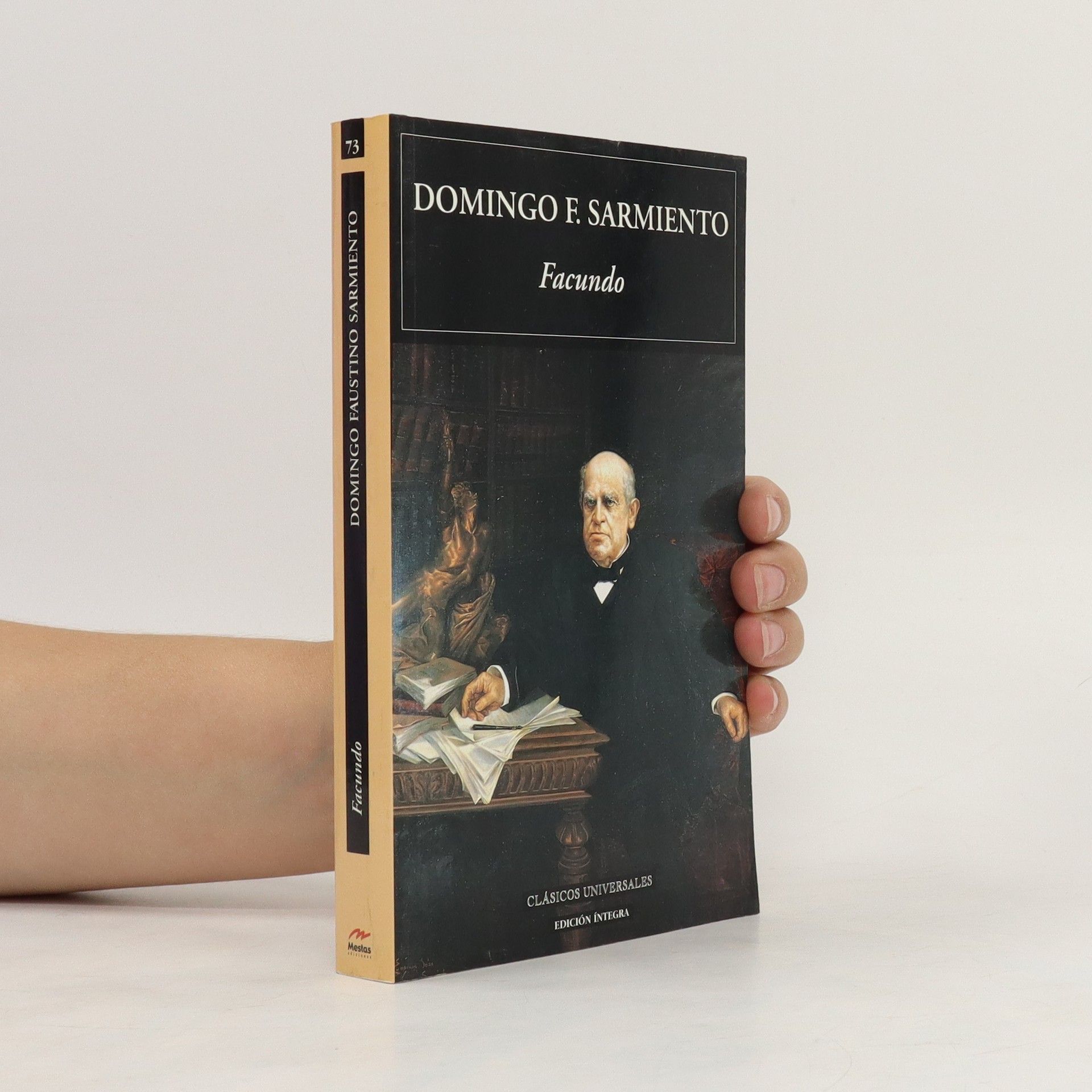Facundo
- 315bladzijden
- 12 uur lezen
Una de las obras fundamentales de la literatura argentina
Domingo Faustino Sarmiento was een Argentijnse activist, intellectueel, schrijver en staatsman wiens werk een grote invloed had op het 19e-eeuwse Argentinië. Hij wijdde zich met name aan onderwijshervormingen, wat hem de titel "De Leraar" van Latijns-Amerika opleverde. Zijn productieve geschriften omvatten journalistiek, autobiografie, politieke filosofie en geschiedenis. In zijn hoofdwerk bekritiseerde hij de dictatuur en zette hij het verlichte Europa af tegen de vermeende barbaarsheid van de Argentijnse samenleving. Als president bevorderde Sarmiento onderwijs en democratie, terwijl hij tegelijkertijd de infrastructuur van het land moderniseerde, en liet een nalatenschap van verlicht denken en strijd tegen autoritarisme achter.

Una de las obras fundamentales de la literatura argentina